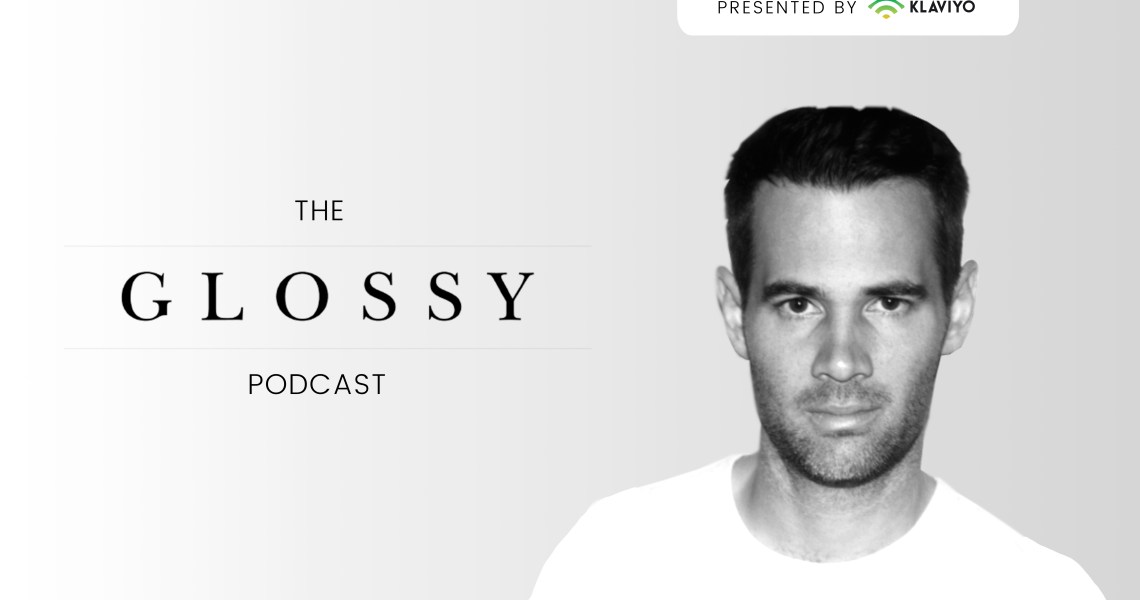Glossy+ members enjoy early access to The Glossy Podcast to stay one step ahead. Subscribe to Glossy+ to receive exclusive content and newsletters, early access to stories, invites to members-only events and much more.
Subscribe: iTunes | Stitcher | Google Play | Anchor
Frame — which started as a side project for founders Jens Grede and Erik Torstensson while working full time at the agency they started, Wednesday — is on track to hit $120 million sales in its sixth year.
According to Grede, it wasn’t a calculated success. The brand stumbled upon its business strategy.
“We didn’t have a master plan to build a new lifestyle brand out of California,” said Grede. “We were in London at the time, and we wanted to make product we liked. We didn’t think about a distribution strategy or a customer strategy.”
Grede joined the Glossy Podcast to talk about why he doesn’t worry much about distribution strategies, what’s behind his brand’s approach to being a lifestyle business and how it places limitations on itself in terms of growth.
On being a product-driven business
While Frame, which launched in 2012 as Frame Denim, but later lost ‘denim’ to encompass its full apparel line, may have started during the direct-to-consumer brand boom, it doesn’t follow any of the cohort’s strategic guidelines. Frame started by selling at Barneys and Net-a-Porter, and it currently has over 1,000 wholesale accounts, as well as its own e-commerce site and five standalone stores. Grede said that, as a designer brand, there’s no strategy behind distribution other than to follow the customer and focus on good product.
“Too many brands are too focused on the business of the business, rather than the business of making clothes [and] the product itself. I’m not in the distribution business. I’m in the brand business,” said Grede. “If you’re buying from Frame or from a retail partner, I’m not so concerned about that. There’s too much focus on the business of the business, because that is controllable, and there’s not enough talk about making amazing product. It’s easier to talk about how I can make the shopping experience more convenient than how to make product people actually want to buy.”
On understanding brand limitations
While Grede considers Frame to be a lifestyle brand (but not a luxury brand), he said that doesn’t mean the brand can launch any new product category and expect customers to buy in. The brand plans its growth to align with where the customer has given it permission to grow.
“It’s about knowing who we design for and understanding what our customer gives us license to do. We are not in the shoe business. We should not be in the handbag business. We should not be in the evening wear business,” said Grede. “Our customer wouldn’t give us the license to go there, and if we were to, we would demote our own brand. We would be putting ourselves on a pedestal we do not deserve. We can’t confuse brand awareness with the permission to do anything.”
On the future of lifestyle brands
While Frame may not neatly fall into the DTC brand bucket, Grede doesn’t underestimate the importance of customers’ influence on brands today. That role customers play in having a share of voice in fashion has also changed the definition of what it means to be a lifestyle brand.
“The brands that will take share will eradicate the barrier between brand and people. It used to be if you bought something like a branded trench coat, you bought a piece of that lifestyle. We are not looking for brands to be guides to how we lead our lives, but we’re looking for brands to be a part of our lives,” said Grede. “The era of the lifestyle brand is not over; the era of a brand dictating a lifestyle is over.”
Join the 2,500+ innovative fashion and beauty brands like Chubbies, Taylor Stitch, and Bonobos who sell more with Klaviyo. Learn how to level up your marketing today here.




